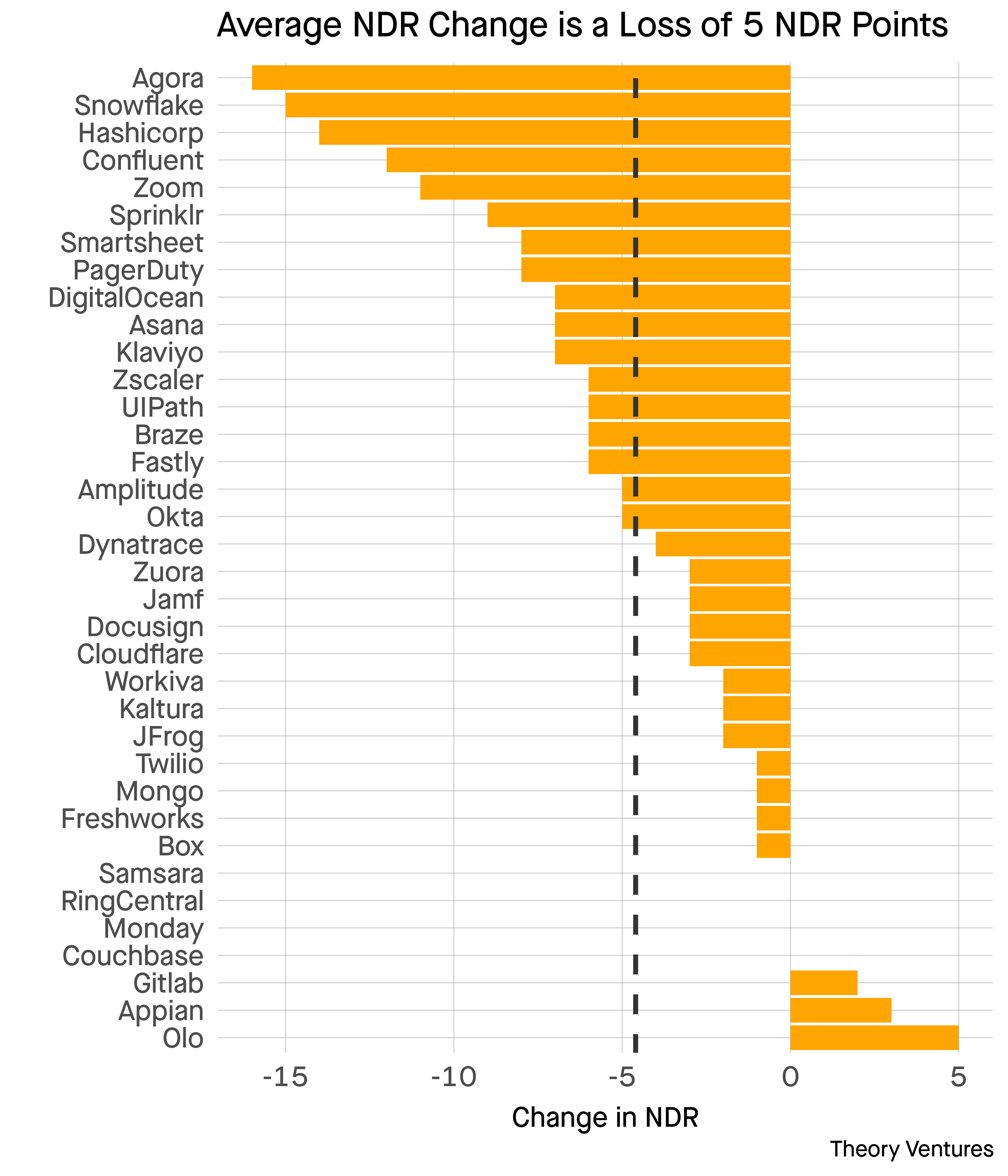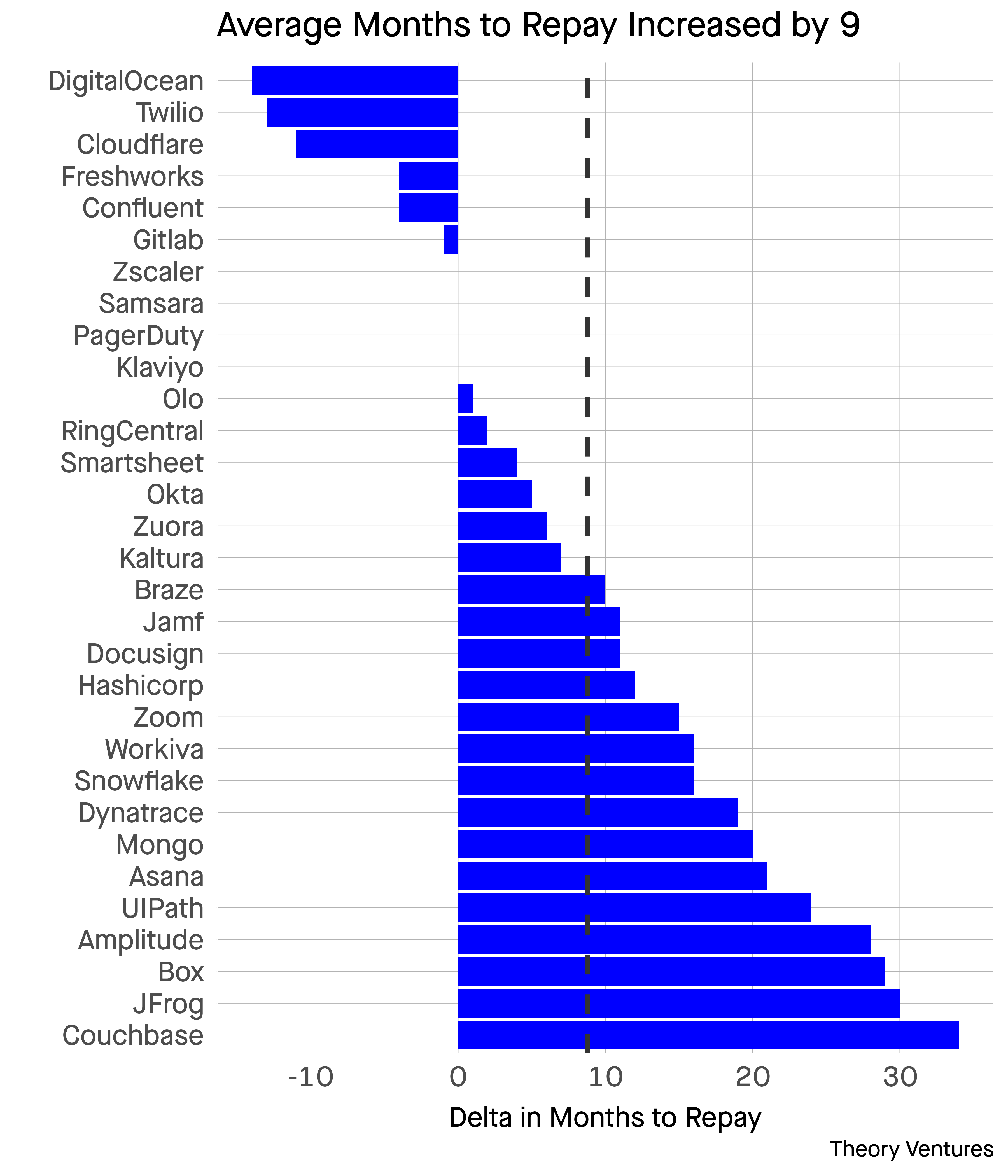Budget cuts followed interest rate hikes in 2022. By late 2023, more than a year of financial scrutiny had challenged many publicly traded software companies.
However, 2024 has been a tough year again.

Net dollar retention for publicly traded software companies fell from 113% on average to 108%, a five percentage point drop.1 80% of publicly traded companies saw their NDR wilt again in 2024. Overall account expansion remains roughly 5 percentage points above inflation.

There’s a similar story in payback periods. The average publicly traded company saw paybacks increase by 9 months from 35 months to 44 months. That means most software companies aren’t achieving positive contribution margin until the fourth year of a customer. Again, 80% of companies saw paybacks worsen.2
I’m not a fan of lifetime value (LTV) in startups (how can one predict a 7 year customer lifetime value if the company isn’t yet 7 years old?) But for public software companies with these sparser economics, LTV becomes an important determinant of whether & when to invest more in growth.
If paybacks are 4.5 years & LTVs are five years, that data should provoke strategic questions about the company operations.
1T-test p value of 3.087e-06
2T-test p value of 0.0002297
3Data source is Jamin Ball’s Clouded Judgement